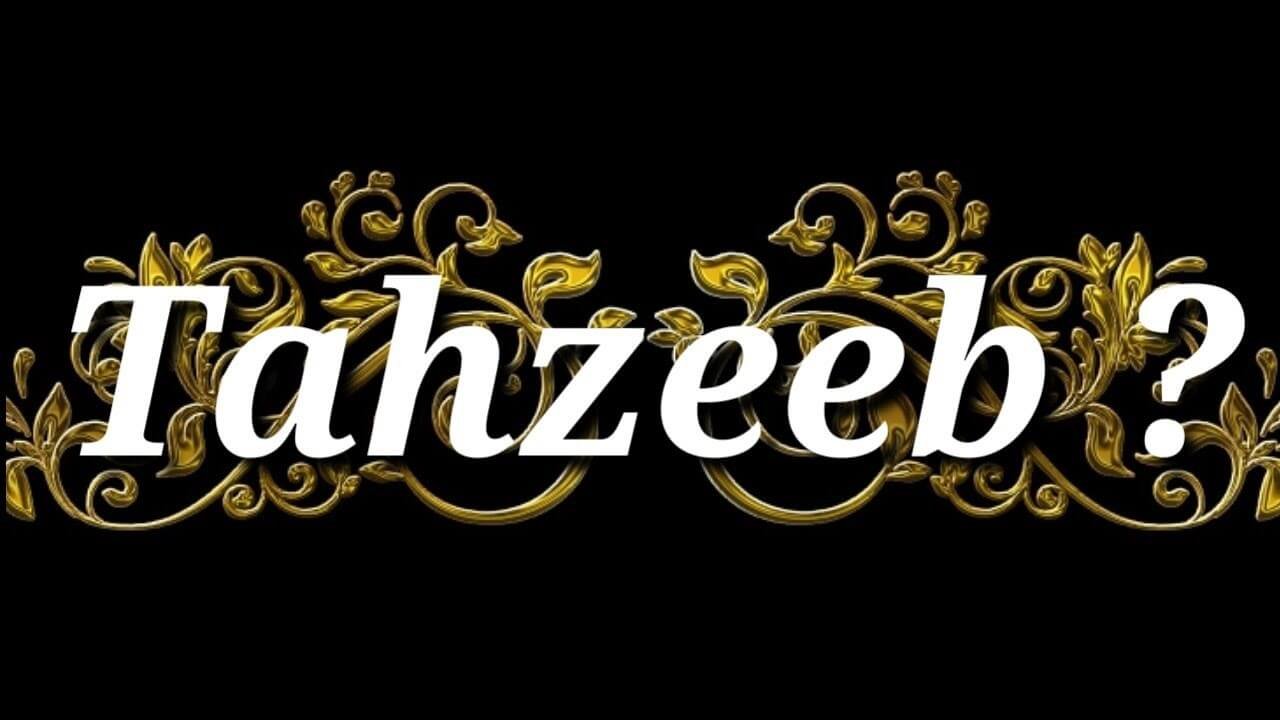Tehzeeb Meaning in Urdu Recifest
“Tehzeeb” is a word deeply embedded in the cultural and linguistic heritage of South Asia. In Urdu, a language rich in literary and poetic traditions, “Tehzeeb” carries significant connotations that reflect societal values, ethics, and social norms. This article delves into the meaning of “Tehzeeb” in Urdu, its contextual significance, and its relevance in recifest (recitation festivals). Through this exploration, we aim to provide a thorough understanding of how “Tehzeeb” is perceived, its impact on cultural practices, and its role in contemporary Urdu recitation festivals.
Understanding Tehzeeb: A Linguistic Perspective
Definition and Origin
The term “Tehzeeb” (تہذیب) originates from Arabic, where it is closely associated with refinement, culture, and civilization. In Urdu, “Tehzeeb” denotes not just societal norms but also the refinement of manners and morals. It encompasses a broad spectrum of attributes, including etiquette, cultural refinement, and a sense of moral uprightness.
Etymology
In the context of Urdu, “Tehzeeb” is derived from the Arabic root word “Hazzb” (حَزْب), which implies adherence to specific customs and values. Over time, “Tehzeeb” has evolved in Urdu to signify a more refined sense of cultural and moral propriety. This evolution underscores the adaptability and depth of the term within the South Asian cultural milieu.
Tehzeeb in Urdu Culture
Historical Context
Historically, “Tehzeeb” has been a cornerstone of South Asian societal structures. During the Mughal era, the concept of “Tehzeeb” was integral to the courtly life and the cultural ethos of the time. It was associated with the sophisticated manners and elaborate customs observed in the royal courts. This period saw the flourishing of Urdu literature, poetry, and the arts, all of which were reflective of and contributed to the evolving notion of “Tehzeeb.”
Contemporary Interpretation
In modern times, “Tehzeeb” is often invoked in the context of education, manners, and social behavior. It signifies a level of cultural and moral sophistication that is expected of individuals in polite society. The concept is prevalent in discussions about social etiquette, educational standards, and cultural practices.
Tehzeeb and Recifest
Definition of Recifest
Recifest, short for recitation festivals, are events where participants recite poetry, prose, or other forms of literary work. These festivals celebrate the art of recitation and the beauty of linguistic expression. In South Asia, recifest often feature traditional poetry, classical literature, and contemporary works, reflecting the rich tapestry of Urdu literary tradition.
Role of Tehzeeb in Recifest
In recifest, “Tehzeeb” plays a critical role. It influences both the content and the manner of recitations. Participants are expected to exhibit a high degree of cultural refinement, respect for tradition, and adherence to the etiquette of recitation. The concept of “Tehzeeb” ensures that recitations are conducted with the utmost respect for the art form and its cultural significance.
Etiquette of Recitation
The etiquette of recitation at recifest is deeply rooted in the principles of “Tehzeeb.” This includes:
- Respect for Tradition: Reciters are expected to honor traditional forms and styles of recitation. This respect is reflected in their adherence to classical norms and the manner in which they present their work.
- Cultural Sensitivity: The content of recitations is often chosen to reflect cultural values and norms. Reciters are expected to be mindful of cultural sensitivities and to avoid topics that may be considered inappropriate or offensive.
- Moral Integrity: The recitation should align with the moral and ethical standards associated with “Tehzeeb.” This includes avoiding content that could be seen as disrespectful or lacking in moral fiber.
- Presentation and Diction: The presentation of recitations is also governed by the principles of “Tehzeeb.” This includes maintaining proper diction, tone, and body language to convey the intended message effectively and respectfully.
Impact of Tehzeeb on Recifest
The impact of “Tehzeeb” on recifest is profound. It shapes the overall atmosphere of the festival and influences the audience’s reception of the recitations. A festival characterized by high “Tehzeeb” is likely to be more respected and valued within the cultural community.
- Enhancing the Quality of Recitations: High standards of “Tehzeeb” contribute to the overall quality of recitations. Participants who adhere to these standards are likely to deliver more impactful and resonant performances.
- Fostering Cultural Appreciation: By upholding the principles of “Tehzeeb,” recifest help in fostering a deeper appreciation for cultural traditions and literary heritage. This cultural appreciation is crucial for the preservation and continuation of traditional art forms.
- Encouraging Respectful Engagement: “Tehzeeb” ensures that interactions during the festival are conducted with respect and dignity. This creates a positive environment that encourages meaningful exchanges and fosters a sense of community among participants and audiences.
Case Studies: Tehzeeb in Prominent Recifest
The Annual Urdu Recitation Festival
One prominent example of a recifest where “Tehzeeb” is prominently observed is the Annual Urdu Recitation Festival. This event, held annually in major cities across South Asia, celebrates the richness of Urdu poetry and prose. The festival is known for its adherence to high standards of “Tehzeeb,” which is evident in the meticulous preparation of reciters, the respectful conduct of audiences, and the overall ambiance of the event.
Participants are often seen donning traditional attire, and their recitations reflect a deep respect for classical Urdu literature. The festival also includes workshops and discussions on “Tehzeeb,” providing an educational platform for both aspiring and experienced reciters.
The Literary Heritage Week
Another example is the Literary Heritage Week, which focuses on celebrating various aspects of Urdu literature, including recitation. The event features a series of recitals, discussions, and cultural performances that emphasize the importance of “Tehzeeb.” The week is characterized by a commitment to preserving the cultural and moral values associated with traditional Urdu literature.
During this week, special attention is given to the historical context of “Tehzeeb” and its influence on contemporary practices. Workshops on proper recitation techniques and the history of Urdu literature highlight the ongoing relevance of “Tehzeeb” in modern literary and cultural contexts.
Challenges and Future Directions
Preserving Traditional Standards
One of the key challenges facing recifest is the preservation of traditional standards of “Tehzeeb” in a rapidly changing cultural landscape. As modernity influences cultural practices, there is a risk that some aspects of traditional etiquette and refinement may be overlooked or lost.
To address this challenge, it is important for recifest to continuously emphasize the importance of “Tehzeeb” and to incorporate educational elements that highlight its significance. This can be achieved through workshops, discussions, and the inclusion of traditional practices in modern recitations.
Embracing Modern Innovations
While preserving traditional standards is crucial, it is also important to embrace modern innovations that can enhance the recitation experience. This includes the use of technology to reach wider audiences and to facilitate the sharing of Urdu literature in new formats.
Balancing the preservation of “Tehzeeb” with the adoption of modern practices can help ensure that recifest remain relevant and engaging while upholding the cultural and moral values associated with “Tehzeeb.”
Conclusion
The concept of “Tehzeeb” in Urdu is a testament to the rich cultural heritage and moral values of South Asia. Its influence extends into various aspects of cultural practices, including recifest, where it plays a vital role in shaping the etiquette, content, and overall experience of literary recitations. As we continue to celebrate and explore the meaning of “Tehzeeb,” it is important to balance the preservation of traditional values with the embrace of modern innovations. Through this balance, we can ensure that “Tehzeeb” remains a cornerstone of Urdu culture and recitation festivals for generations to come.




